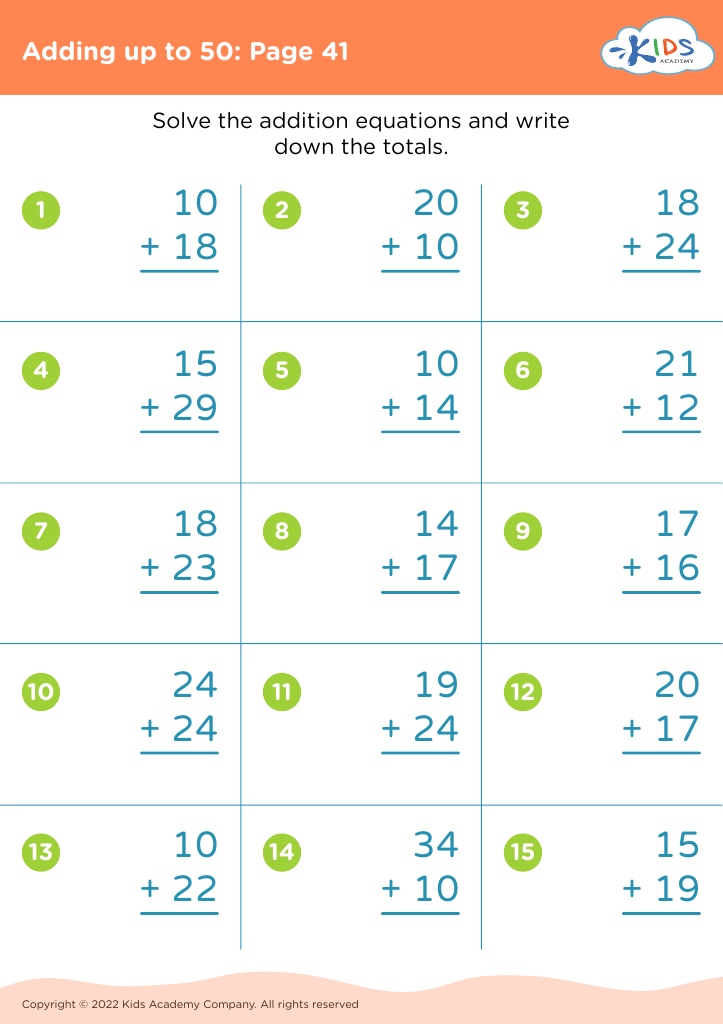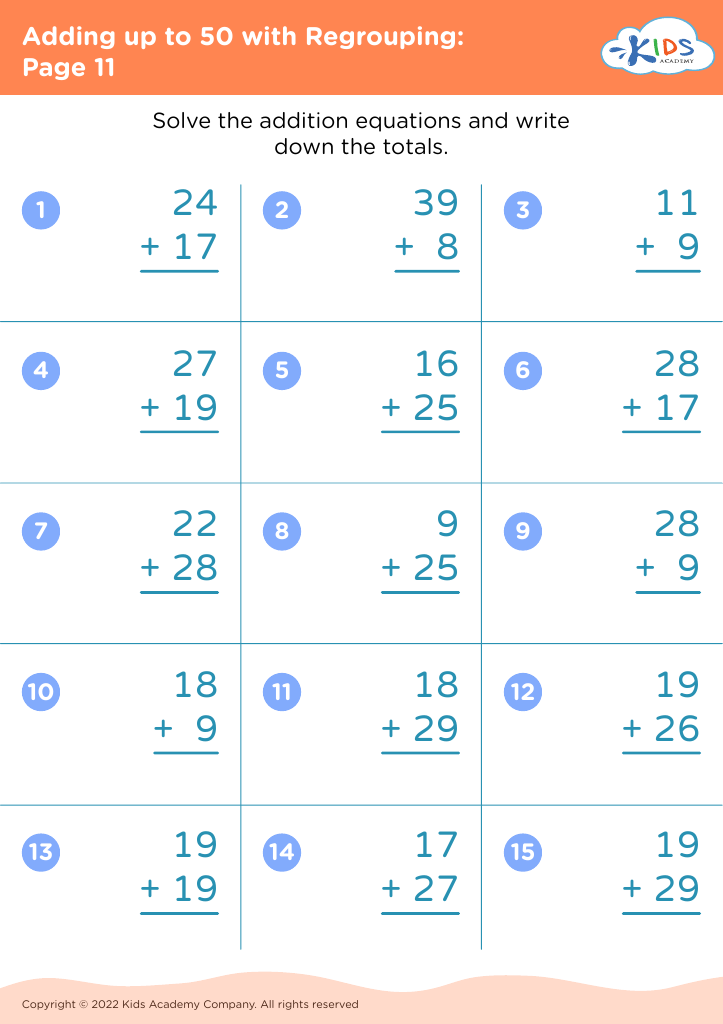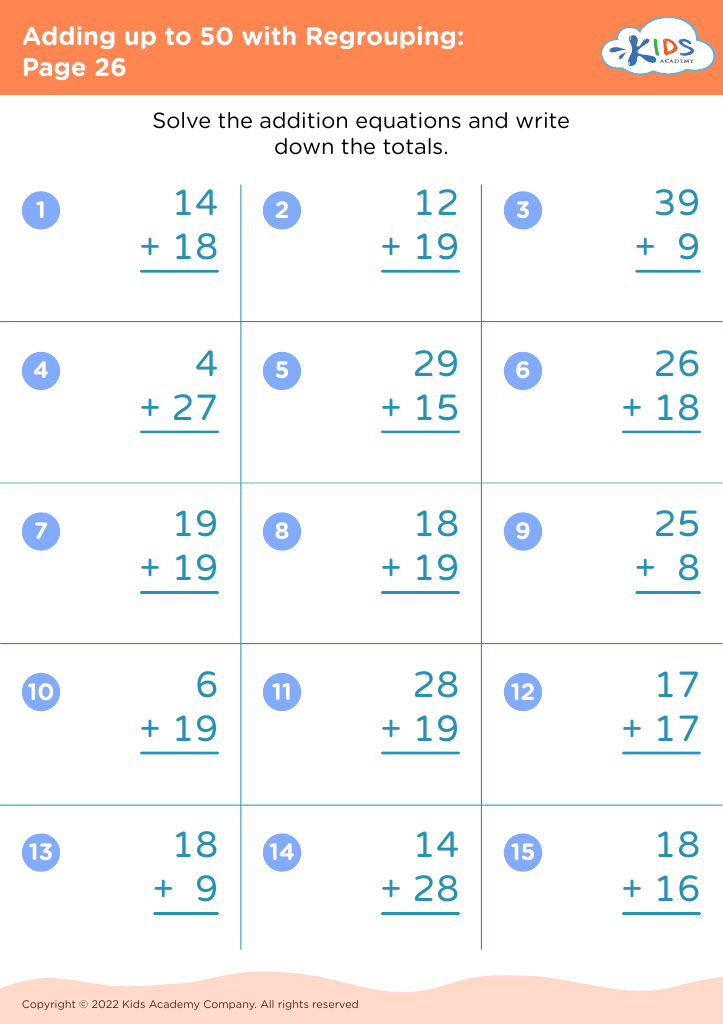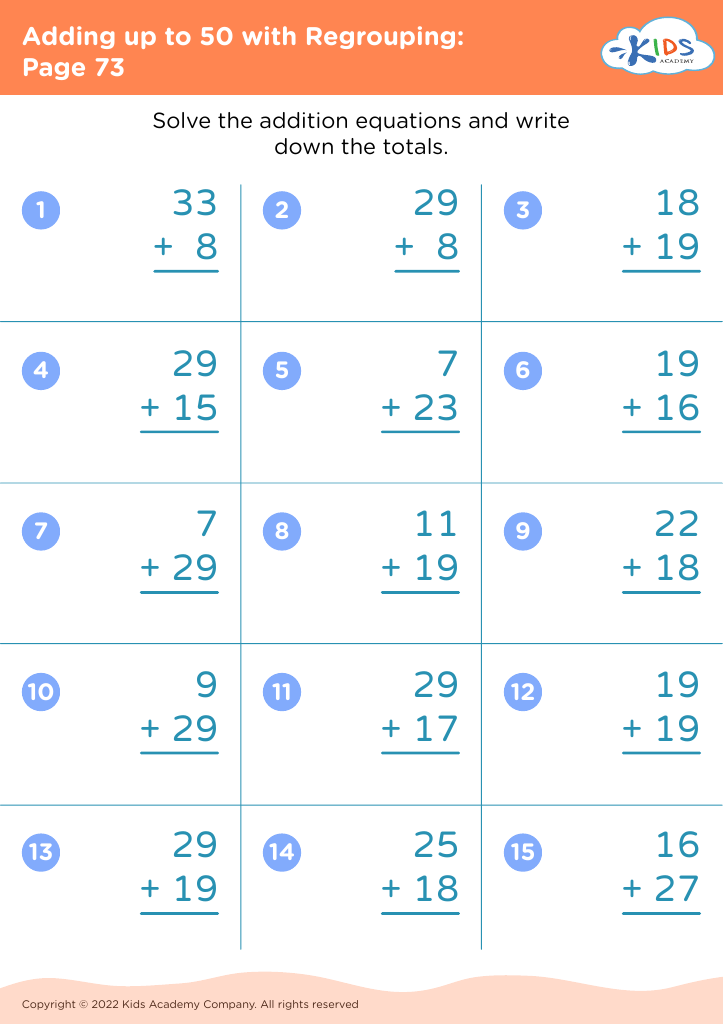Color Identification Adding up to 50 Worksheets for Ages 3-8
7 filtered results
-
From - To
Unlock your child’s potential with our "Color Identification Adding Up to 50 Worksheets," designed for ages 3-8! These engaging worksheets help young learners enhance their color recognition while mastering addition skills up to 50. Each activity combines fun and education, making learning an exciting adventure. With vibrant designs and interactive content, children will enjoy identifying colors and counting objects, all while improving cognitive abilities and mathematical confidence. Ideal for parents and educators, these worksheets make a fantastic addition to any home or classroom. Dive into a world of colors and numbers, where education meets creativity! Download now and spark your child's love for learning!
Color identification and basic addition skills are crucial foundational concepts for children aged 3 to 8. Understanding colors helps children to express themselves, categorize objects, and develop creativity. It plays a vital role in their cognitive development, enhancing observational skills and language acquisition. When children learn to identify colors, they can communicate more effectively about their experiences and surroundings.
Adding up to 50 introduces essential numerical skills, fostering a sense of number sense, which is critical for future mathematics learning. Engaging young learners in math activities helps in building confidence, enhancing problem-solving abilities, and encouraging logical thinking. Learning addition through playful approaches, like using colorful objects or engaging games, turns abstract concepts into tangible experiences, making math enjoyable.
Moreover, both color identification and addition promote social skills as children often collaborate in activities, learning teamwork and communication. For parents and teachers, nurturing these skills can lead to improved academic performance and help cultivate a positive learning environment. Supporting children in mastering these basics provides them with a stronger foundation for future learning in both math and broader educational areas, ensuring they are better prepared for school and life.
























